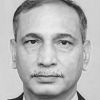View from Pakistan: Power of hope
The Valley is a classic environment for nurturing nationalism, home of “Kashmiriyat”.
Karachi: A conflict ends when the people at its centre look over the precipice and recognise that compromise is a life-or-death imperative, said John Lyndon of OneVoice Europe recently in the context of the Israeli-Palestinian dispute. This reminded me of a recent conversation I had with a senior Indian security official. We were surrounded by diplomats, journalists and military officials gathered there to discuss the global security challenges in a friendly West Asian country.
After an exchange of pleasantries, the official asked me where I was born in Pakistan. When I named the district, his face lit up and he said that it was his parents’ birthplace as well. His parents spoke the dialect of Multan and he and his siblings were fascinated by stories of pre-Partition days. To the amusement of the other guests, we struck a cultural chord and started talking about Pakistan-India conflicts and the acrimony and bitterness they had bred in the subcontinent.
I wanted my Indian counterparts to listen to a voice from the past that spoke of the future — the voice of Eqbal Ahmad who was born in a small village in Bihar in 1932 into a well-to-do family but chose to migrate to Pakistan at the time of independence. Described by an English magazine as “a revolutionary and intellectual who was the Ibn Khaldun of modern times”, he died of cancer on May 11, 1999, at the age of 67.
According to Eqbal, history and geography bind India and Pakistan in perpetuity. Fear, hostility, conflict and war have made it a painful embrace. Nuclear weapons threaten to make it fatal. He was of the view that both Delhi and Islamabad perceive Kashmir’s realities and interests as subservient to their own and often remarked bitterly that India and Pakistan were willing to fight to the last Kashmiri.
The question he posed was: were both willing to find a Kashmiri solution for Kashmir?
His answer was pragmatic. The first step was to comprehend the ambitions and fears of the three parties: India, Pakistan and the Kashmiris. India’s ambition is territorial; its aim, to exercise sovereignty over the Valley, Jammu and Ladakh. Its strategic concerns vis-à-vis China reinforce the territorial imperative. Pakistan’s ambition is also territorial. However, it is reinforced by a deeply held sense of injustice.
As for the Kashmiri-speaking majority, their driving force was a well-founded sense of victimhood; a feeling rooted in history but greatly nourished by Delhi’s brutal repression and its security forces’ excesses. Kashmiris also view themselves as a divided and dispersed people, a perception that nourishes the yearning for reunification and independence. The Valley is a classic environment for nurturing nationalism, home of “Kashmiriyat”. India cannot suppress it. It must be accommodated, Eqbal pleaded.
Eqbal felt that neither India nor Pakistan had tried the option of a negotiated settlement in earnest. First, it required the two adversaries to rethink their fixed positions and acknowledge that Kashmir’s future is a matter of dispute between Pakistan, India, and the Kashmiri people; its settlement must involve and satisfy all three. Second, that no matter how forcefully it was promoted, a unilateral solution would not work. Third, that “the benefits of a historic compromise are much greater than the profits or pride of territorial acquisition”.
The concrete proposal Eqbal envisaged was a step-by-step progression from autonomy, to open borders, to unification with divided sovereignty. “Everyone would give up something so that everyone could gain something.”
The challenge of Pakistan’s Kashmir diplomacy is not only to pursue bilateral negotiations but to persuade international opinion and bring multiple pressures on the Indian government to opt in favour of a sane and lasting settlement. The problem, unfortunately, is that the hand stretched towards the future is chopped off by another anchored in the past.
In talking to my Indian friends, I concluded by quoting the words of Eqbal Ahmad: “To become prosperous and normal peoples, we must make peace where there is hostility, build bridges where there are chasms, heal where there are wounds, feed where there is hunger, and prosper where there is poverty. Kashmir is the finest place to start, and not merely because it is the core of the Indo-Pakistan conflict. Our histories, cultures and religions have converged in Kashmir. Our rivers begin there, mountains meet there, and our dreams rest there.”
These were no hollow words; they came from the heart of a true visionary from Pakistan.
I really think that meaningful change will require peace-loving citizens from Pakistan, India and Kashmir to become organised and demand a break from the burden of history. Our fate is in our own hands.
By arrangement with Dawn



















